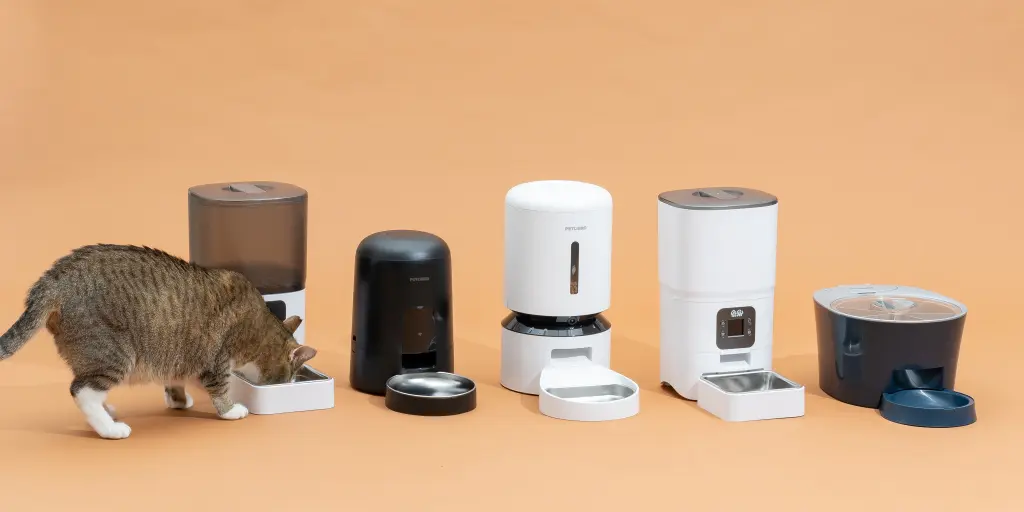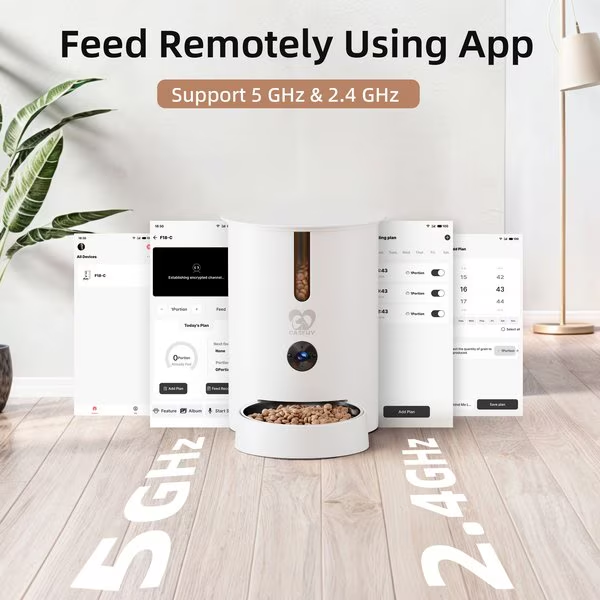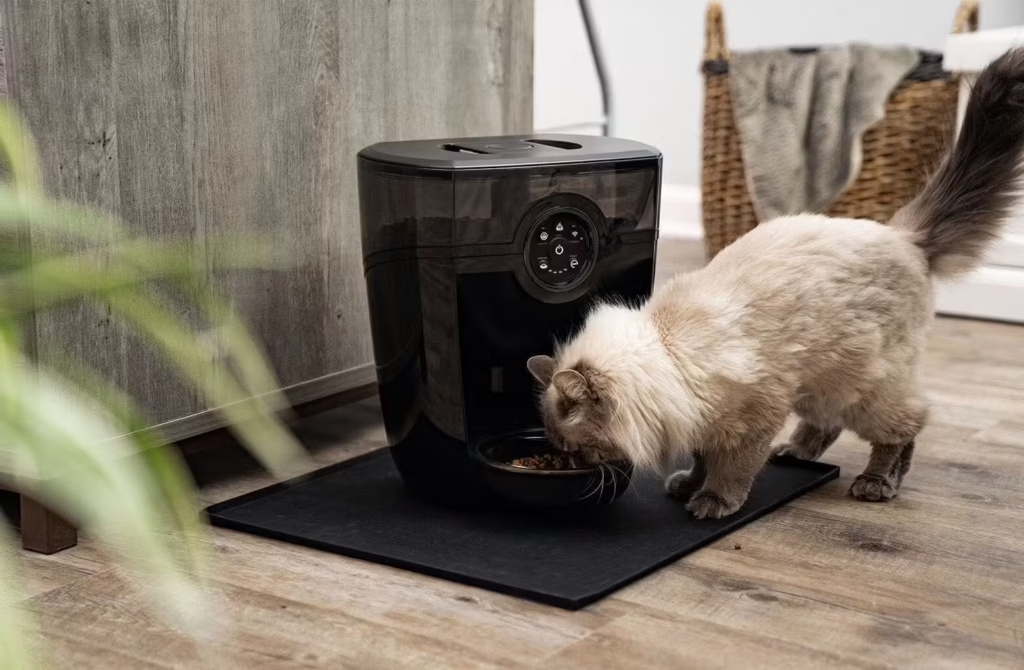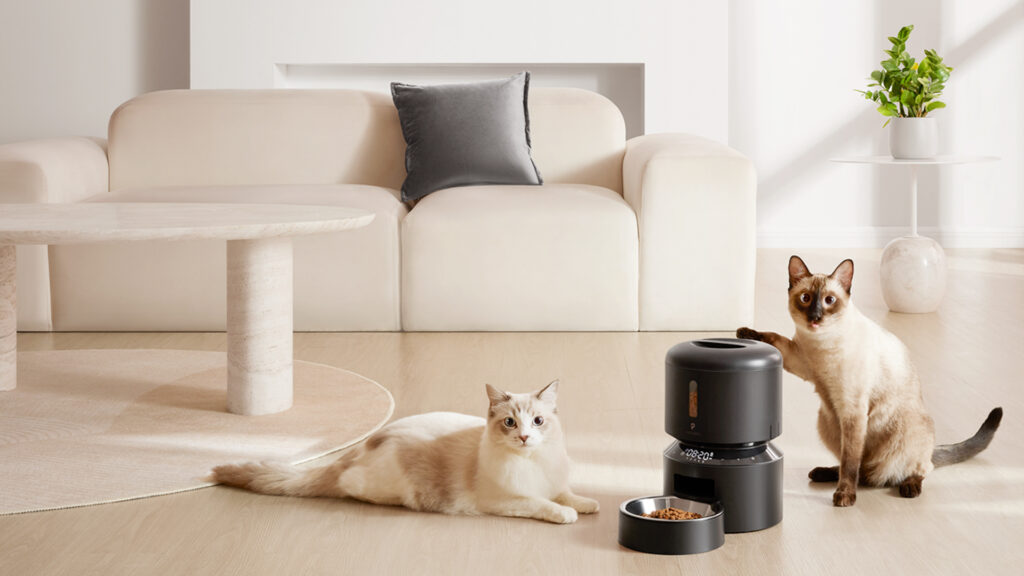My Cat Eats Too Fast – Why It Happens and How to Stop It
Have you ever noticed your cat inhaling its food like there's no tomorrow? If so, you're not alone. Many cat owners face the same issue, and while it may seem harmless, eating too fast can lead to some serious health problems. Let's dive deep into why this happens and what you can do about it.
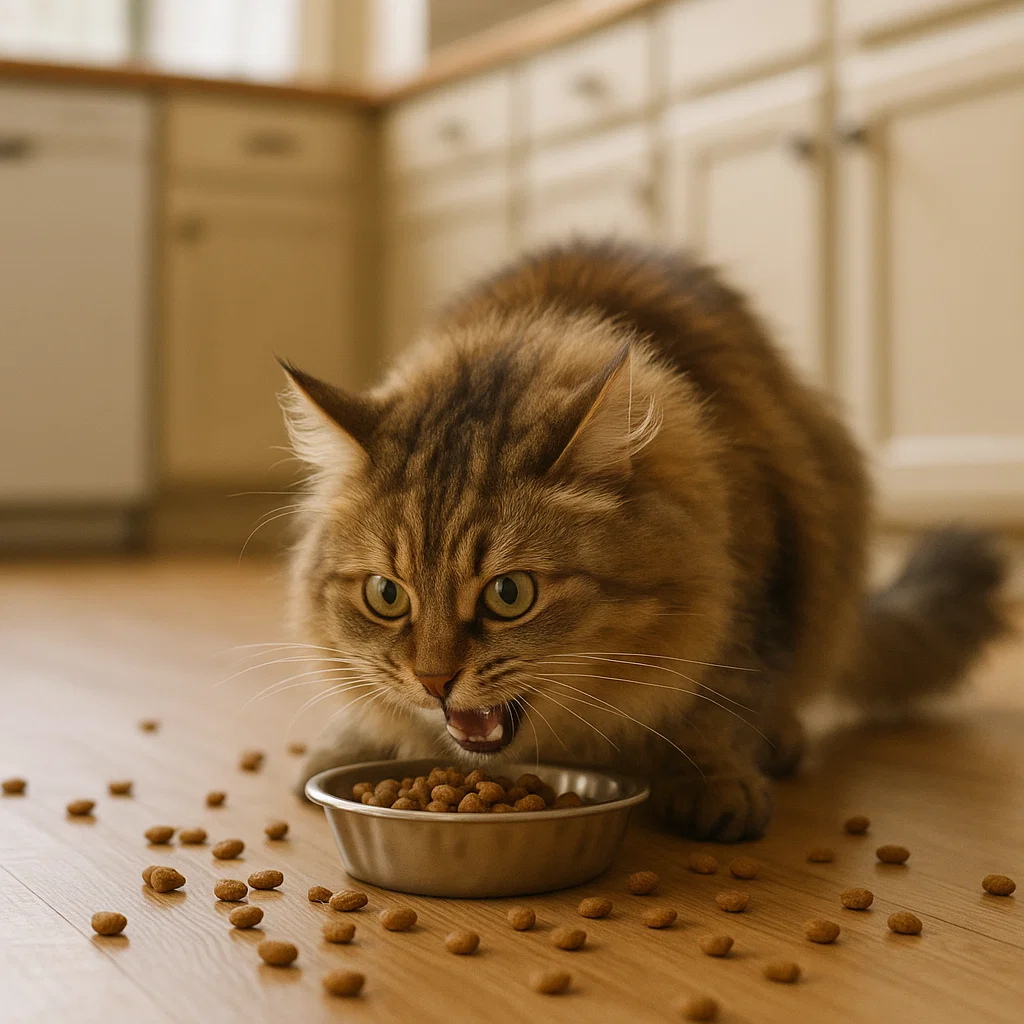
Understanding the Problem
Why Do Cats Eat Too Fast?
Cats are natural hunters. In the wild, they eat small meals throughout the day. When they're indoors and given one or two big meals, they often gobble it up as if there's a race. Sometimes, it's just instinct, and other times it's learned behavior.
Is It Normal for Cats to Gobble Food?
Occasional fast eating is normal, but if your cat eats like it hasn't eaten in weeks every single time, it's something to look into.
Common Causes
In multi-cat homes, competition is real! Cats may rush to eat so their siblings don't steal their meal.
A stressed cat may eat quickly because it feels insecure. Common during changes in environment or routine.
Hyperthyroidism, diabetes, or parasites can make your cat feel constantly hungry, leading to fast eating.
Health Risks of Eating Too Fast
When cats gulp food, they swallow air which can cause vomiting immediately after eating.
Too much air and food too quickly leads to discomfort and digestive issues.
Fast eating increases the risk of choking, especially on dry kibble pieces.
Overeating without proper chewing can lead to unhealthy weight gain over time.
How to Tell If Your Cat Eats Too Fast
Warning Signs to Watch For
- Vomiting right after meals
- Finishing meals in under a minute
- Gulping loudly while eating
- Acting hungry immediately after eating
- Food aggression around other pets
When to Visit a Vet
If your cat's fast eating is new or accompanied by weight loss, diarrhea, or excessive thirst, it's time for a check-up.
Solutions to Slow Down Fast Eating
These bowls have ridges and obstacles that force your cat to eat slowly and work for their food.
Instead of one or two large meals, feed smaller amounts 3-5 times throughout the day.
Make eating fun and challenging! These toys stimulate your cat mentally while slowing down eating.
Free feeding can prevent competition but might lead to overeating. Scheduled feeding helps control portions.
Put kibble on a flat plate or baking tray to make your cat eat slower as they chase pieces around.
Use positive reinforcement. Praise your cat when it eats slowly and never punish for eating fast.
Home Remedies for Fast Eating Cats
DIY Solutions:
- Use a muffin tin - put a few kibbles in each section
- Place a clean golf ball in the food bowl to force your cat to eat around it
- Hide small amounts of food around the house for a hunting game
- Place a small bowl upside down in a larger bowl and scatter food around it
Best Commercial Products to Help
Catit Senses 2.0: Maze design with different difficulty levels
PetSafe SlimCat: Interactive feeder with adjustable difficulty
Doc & Phoebe's Hunting Feeder: Mimics natural hunting behavior
Trixie Activity Fun Board: Multiple compartments and sliding covers
Preventing Fast Eating in Multi-Cat Homes
Feed cats in separate rooms or at different times to prevent competition. Provide plenty of feeding stations spaced far apart, and consider vertical feeding spaces (on cat trees or shelves) to reduce stress.
Myths About Cats Eating Fast
Myth: "My cat eats fast because it loves food too much."
Truth: It's usually instinct or insecurity, not just love for food. Cats don't experience food enjoyment the same way humans do.
When Eating Fast Signals a Health Problem
If fast eating is sudden and extreme, it could mean an underlying health condition. Other warning signs include weight loss despite increased appetite, excessive thirst, or changes in litter box habits. Don't ignore these signs—schedule a vet checkup.
Conclusion
A cat eating too fast isn't just an annoying habit—it can lead to real health issues. The good news? There are plenty of ways to slow your furry friend down, from slow feeder bowls to puzzle toys and DIY tricks. Take action today to keep your cat healthy, happy, and eating at a proper pace.

